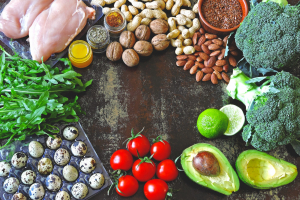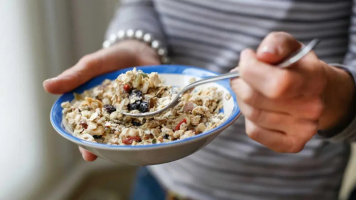Top 12 Ways to Keep your Immune System in Top Shape
To best protect your body from harm, every component of your immune system needs to perform exactly according to plan. The best way you can ensure that happens ... read more...is to practice the good-for-you behaviors every day that your immune system runs on. Here are 12 key ones.
-
One of the biggest ways you can support your immunity is to eat a healthy diet. Superfoods, which are so-called as they are believed to be nutritionally dense, contain a variety of nutrients such as vitamins, fibre and antioxidants that can benefit your overall health.
For those who don't eat meat, adding a daily serving of iron-rich legumes will help to tick this nutrient box, as will opting for wholegrain bread and cereals and eating iron-rich vegetables such as spinach alongside a source of vitamin C. Fruits and vegetables rich in vitamin C include capsicum, tomato and sweet potato. Zinc, too, is important and can be found in meat, shellfish, nuts and seeds including pumpkin seeds or pepitas. For many, superfoods are completely harmless. However, you should not just rely on superfoods alone and you should look to include a varied diet. If you have any allergies or you are prone to allergic reactions, you should consider what may trigger your allergies.
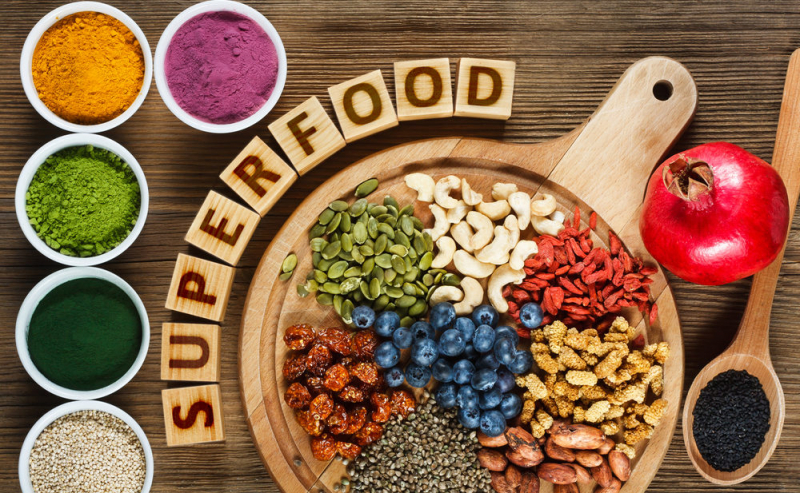
Via: Istock 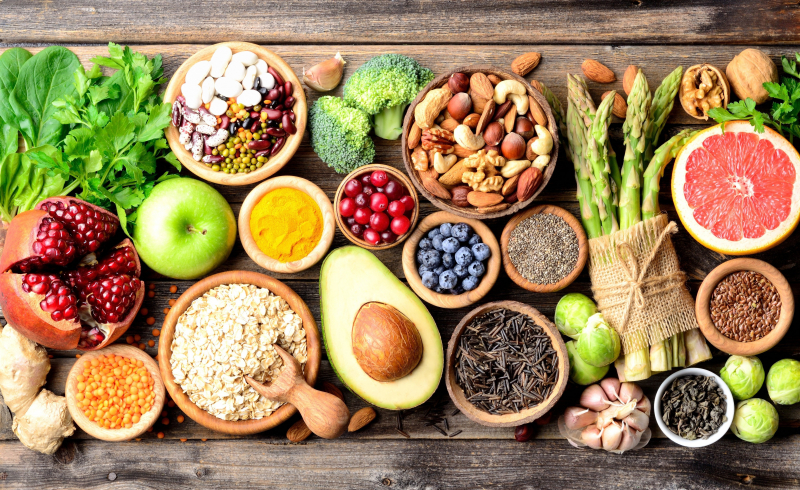
Via: Taste of Home -
Now, more than ever, everyone understands the extent to which gut health affects overall immune function. The stress of modern life, diets high in processed foods and the regular use of antibiotics have left many people with guts that function far from optimally.
Working towards better gut balance means including both pro and prebiotics. Probiotics reintroduce good bacteria to the gut and are typically found in cultured yogurts, fermented drinks such as kombucha, fermented vegetables such as sauerkraut and kimchi, and supplementary products available in pharmacies.
Prebiotics, on the other hand, pass through the digestive tract undigested and feed good bacteria in the gut. Fiber-rich foods that act as prebiotics include asparagus, Jerusalem artichokes, leeks, onions, beans, chickpeas, lentils and supplementary fibers such as psyllium, pectin and guar gum. Aiming to include both probiotics and prebiotics in your daily diet will help your gut be at its best.

Tempeh (Via: Istock) 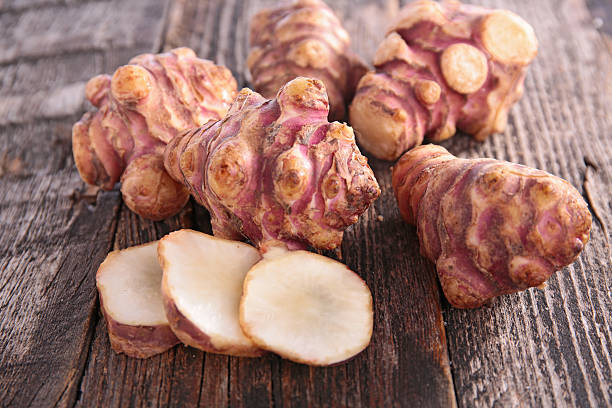
Jerusalem artichokes (Via: Istock) -
While there have been links drawn between a high vitamin C intake and a reduction in cold-like symptoms for hundreds of years, unfortunately, there is only a small amount of scientific evidence that proves that a high dose of Vitamin C can reduce the length of a cold once it is present.
Nevertheless, foods rich in vitamin C including oranges, kiwifruit, berries, tomatoes, red capsicums and broccoli, are all rich in antioxidants that offer positive nutritional benefits. The daily recommended intake of vitamin C is 40 milligrams, but you can safely double this dose, with a daily serving of berries, citrus and kiwifruit to give your body a natural daily vitamin C hit, especially when recovering from an infection.

Via: Genetica 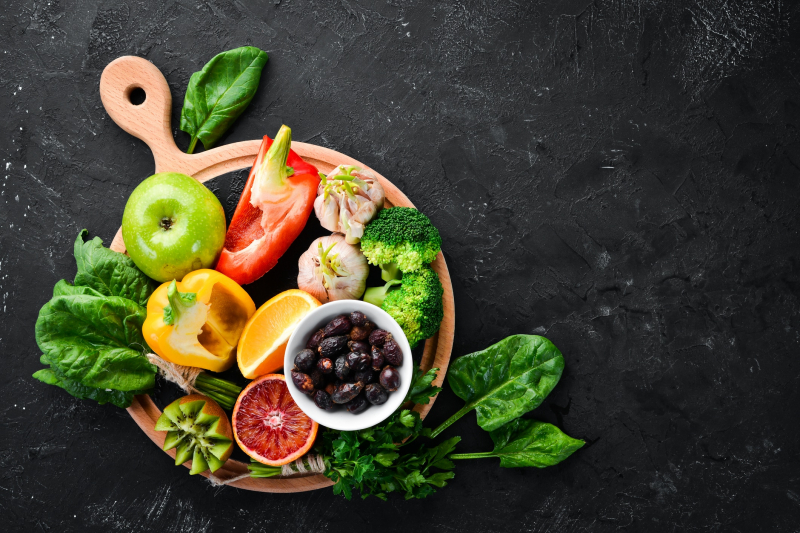
Via: Chicago Health Magazine -
Building a strong immune system is not only about what you do eat but also about what you actively choose to avoid. A rise in home-delivered food options means that many people are eating more fast, processed and fried foods, which will not be doing the immune system any favors.
Research conducted at the University of Bonn in Germany has determined that fast food causes the immune system to react in the same way it does when it is exposed to bacterial infection. Over time it is believed this leaves everyone with an increased risk of developing chronic disease conditions including type 2 diabetes. So if you do regularly order in, try to avoid deep-fried options such as fries, spring rolls, curry puffs, schnitzels and fried chicken.

Via: The Economic Times 
Via: Parisi Speed School -
The powerful anti-inflammatory omega 3 fats found in deep-sea cold fish have been associated with improved immune function. But it is also worth considering what other oils you may regularly consume that are influencing your immune function. Vegetable oils contain pro-inflammatory omega 6 fats, which are not so good for immune function. Generally speaking, many processed foods use vegetable oils, meaning commercial sauces, pre-made meals and snack foods may deliver a hearty dose of omega 6 fats.
On the other hand, Australian Extra virgin olive oil has an extra high antioxidant content and therefore has the potential to affect immune function positively. So to give your immune system the right mix of good fats each day, the key is to add a couple of tablespoons of extra virgin olive oil to a salad dressing or use it in cooking. Contrary to popular opinion, good quality Australian olive oil can withstand home cooking temperatures without cause for concern. The other key step is to keep your intake of vegetable oil, from spreads, sauces and processed foods as minimal as possible.
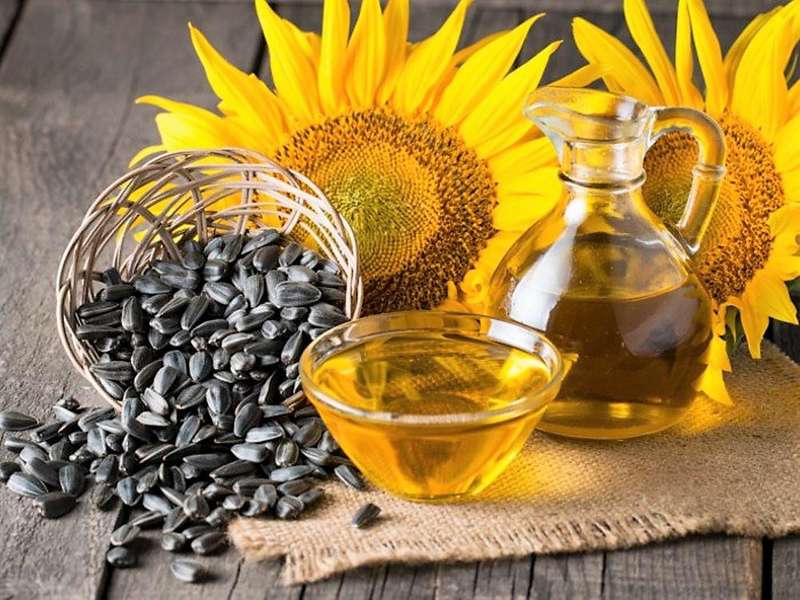
Sunflower oil is high in vitamin E, an important antioxidant and key player for optimal immune function (Via: EFA News) 
Extra Olive oil (Via: Vinmec) -
Regular exercise lowers your risk of developing chronic diseases (like obesity, type 2 diabetes, and heart disease), as well as helps flush bacteria out of the lungs and airways. This may reduce your chance of getting a cold, flu, or other illness.
At a minimum, try to meet the physical activity guidelines outlined by the Centers for Disease Control and Prevention (CDC). Adults should be getting at least 150 minutes (two and a half hours) of moderate-intensity aerobic exercise (like walking, jogging, or cycling) or 75 minutes (one hour and 15 minutes) of high-intensity aerobic exercise (like running) every week. You should also be doing strength training at least twice a week. Note: More activity has been found to be linked to even more health benefits, so aim high. Sunshine also boosts vitamin D in the body, which plays a key role in immune health, too.
Via: Smartass Sports 
Via: Lifeline Healthcare -
According to a review published in the October 2015 issue of Current Opinion in Psychology, long-term stress leads to chronically elevated levels of the steroid hormone cortisol. The body relies on hormones like cortisol during short-term bouts of stress (when your body goes into a “fight-or-flight” response); cortisol has a beneficial effect of actually preventing the immune system from responding before the stressful event is over (so your body can react to the immediate stressor). But when cortisol levels are constantly high, it essentially blocks the immune system from kicking into gear and doing its job to protect the body against potential threats from germs like viruses and bacteria.
There are many effective stress-reduction techniques; the key is to find what works for you. “I like to give my patients options”, says Ben Kaplan, MD, an internal medicine physician at Orlando Health Medical Group Internal Medicine in Florida. He recommends meditation (apps like Headspace and Calm can help), journaling, and any activity that you enjoy (such as fishing, playing golf, or drawing). Try to do at least one stress-reducing activity every day. Short on time? Start small. Set aside five minutes at some point each day for fun and increase it when you can.

Via: Everyday Health 
Via: LinkedIn -
Sleep is a time when your body produces and distributes key immune cells like cytokines (a type of protein that can either fight or promote inflammation), T cells (a type of white blood cell that regulates immune response), and interleukin 12 (a pro-inflammatory cytokine), according to a review published in Pflugers Archiv European Journal of Physiology.
When you don’t get enough sleep, your immune system may not do these things as well, making it less able to defend your body against harmful invaders and making you more likely to get sick. One study published in July–August 2017 issue of Behavioral Sleep Medicine found that compared with healthy young adults who did not have sleep problems, otherwise healthy young adults with insomnia were more susceptible to the flu even after getting vaccinated. Sleep deprivation also elevates cortisol levels, which of course is also not good for immune function.

Via: The Statesman 
Via: Style Motivation -
In particular, the chemicals released by cigarette smoke — carbon monoxide, nicotine, nitrogen oxides, and cadmium — can interfere with the growth and function of immune cells, like cytokines, T cells, and B cells, according to a November 2016 review in Oncotarget.
Smoking also worsens viral and bacterial infections (especially those of the lungs, like pneumonia, flu, and tuberculosis), post-surgical infections, and rheumatoid arthritis (an autoimmune disease in which the immune system attacks the joints). If you currently smoke, there are many resources available to help you kick your habit, including counseling, nicotine replacement products, prescription non-nicotine medications, and behavioral therapy, according to the CDC.

Via: Cleveland Clinic Health Essentials 
Via: Istock -
Chronic conditions like asthma, heart disease, and diabetes can affect the immune system and increase the risk of infections. For example, when people with type 2 diabetes don’t manage their blood sugar properly, this can create a chronic, low-grade inflammatory response that weakens the body’s defense system, according to an October 2019 review in Current Diabetes Reviews.
Similarly, people with asthma are more susceptible to catching — or even dying from — the flu, often experiencing worse flu and asthma symptoms as a result of the infection, according to a study published in the July 2017 issue of the Journal of Allergy and Clinical Immunology.
If you manage your chronic conditions better, you’ll free up more reserves to help your body fight off infection. So be sure to keep symptoms of chronic conditions under control, doctor visits, and healthy habits that keep your symptoms at bay. Your immune system will thank you.

Via: National Council on Aging 
Via: Verywell Mind -
Drinking high amounts of alcohol is associated with a range of negative health effects, including lowered immune function. When you drink high amounts of alcohol, your body is too busy trying to detoxify your system to bother with normal immune system function.
According to a review published in the journal Alcohol Research in 2015, high levels of alcohol consumption can weaken your body’s ability to fight infection and slow down your recovery time. As a result, people who drink high amounts of alcohol face a greater likelihood of pneumonia, acute respiratory distress syndrome, alcoholic liver disease, and certain cancers, according to the same review.
If you don’t already drink, don’t start. If you drink occasionally, limit your alcohol consumption to one drink (equivalent to a 4-ounce glass of wine) per day if you’re a woman, and two drinks per day if you’re a man, as recommended by the NIH.

Via: Hancock Regional Hospital 
Via: MDLinx -
There are plenty of supplements, pills and potions that claim to boost immune function but hardly any have proven benefits. One of the few options backed by scientific evidence is garlic. Used to treat bacterial infections, high blood pressure and colds for thousands of years it is the organosulfides (naturally occurring chemicals found in garlic and onions), along with vitamin D help to stimulate the production of the immune cells, macrophages. Garlic can be taken as capsules or eaten raw and get some sunlight each day if you can to enhance its potential benefits.
Echinacea is another of the most commonly recommended herbal remedies for colds and flu. The antiviral and antibacterial herb that originates from America does have some research to support its use in reducing the duration of a common cold. The recommended dose is currently 3g a day. And then there is olive leaf extract, which has both anti-inflammatory and antimicrobial benefits. With double the antioxidant content of green tea, the olive leaf extract is another supplement sold for its potential immune-related benefits. While research supporting its use as a specific flu fighter is only in its early stages, it remains a powerful antioxidant supplement with no known side effects.

Echinacea | Herbal Remedies (Via: Dr. Weil) 
Olive Leaf Extract – A Simple Way To Boost Our Immune System (Via: Genesis Regenerative Medicine)























